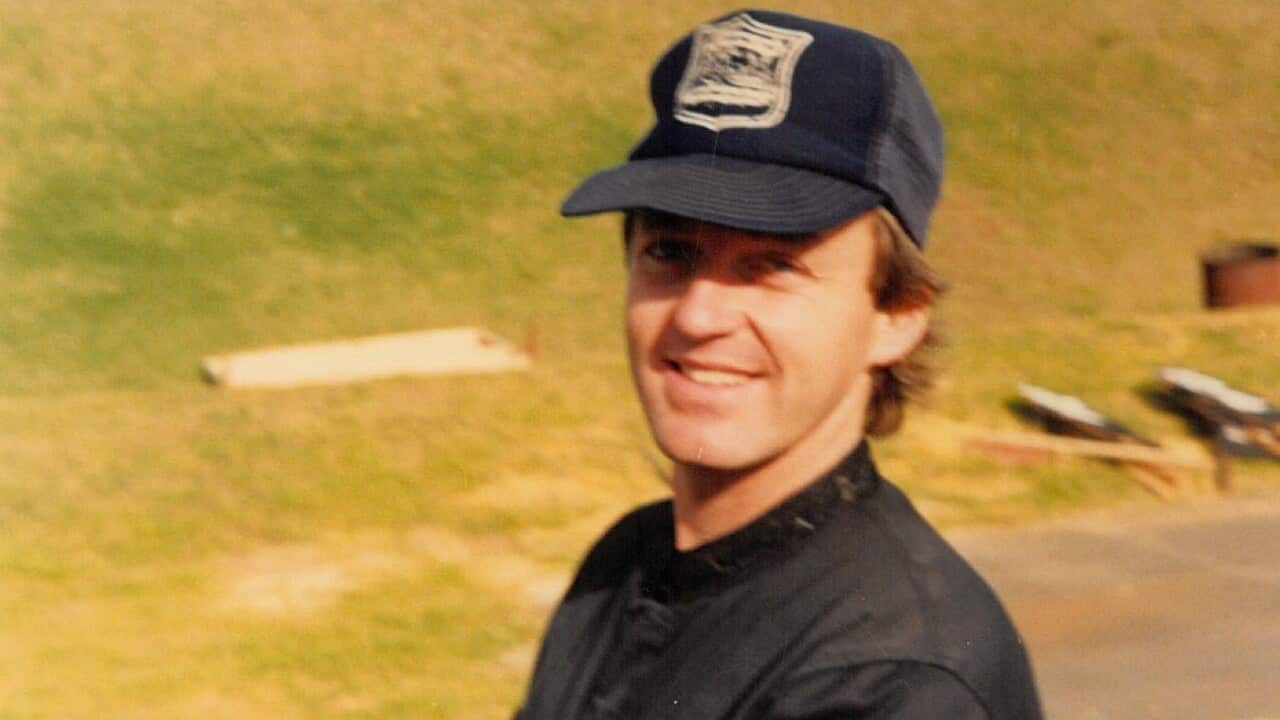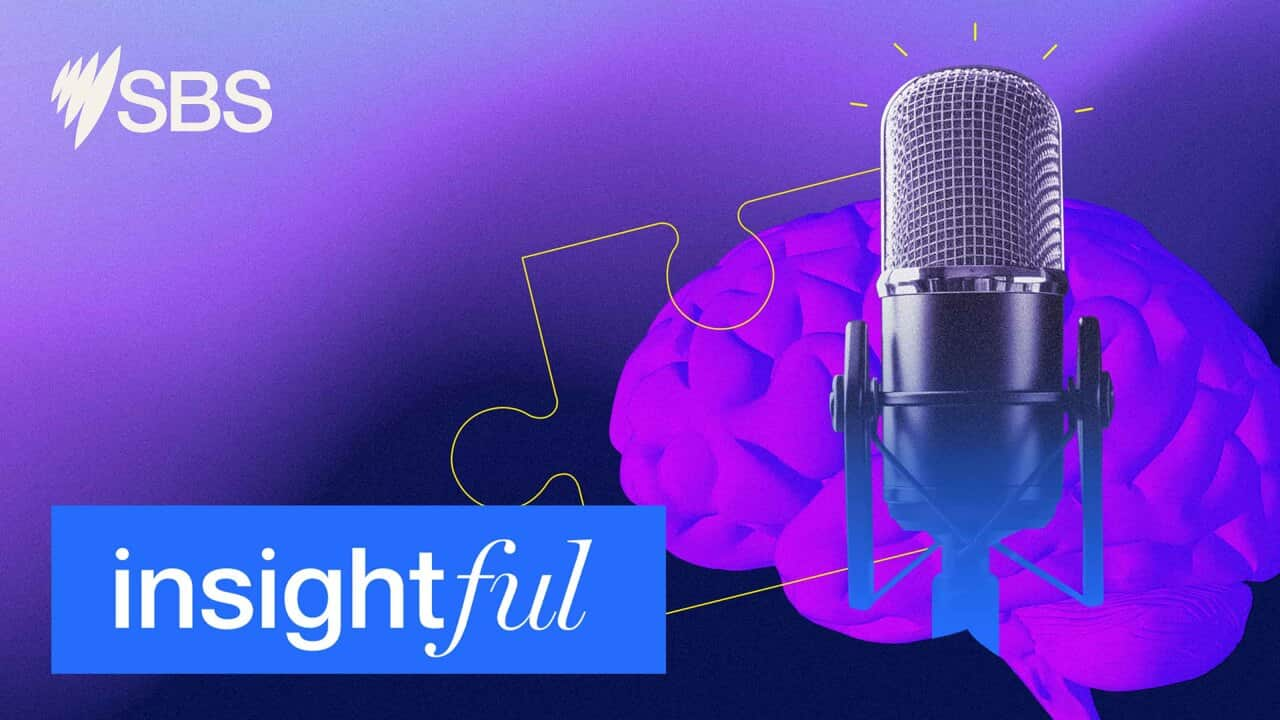We all feel guilt, but can we harness guilt for good? Watch Insight's episode Guilt on
Stream free On Demand

Guilt
episode • Insight • Current Affairs • 52m
episode • Insight • Current Affairs • 52m
Mark Davidson is a former police detective sergeant with a 24-year career in the NSW Police Force. Eleven of those years were as a senior sniper and tactical team leader with the force's Tactical Operations Unit, which responds to high-risk domestic and counter-terrorism situations. He spent his entire adult life in and around the police and military. It was what he loved, it was what he knew, and it was what he was good at.
But when he went to work on 15 December 2014, the course of his life and career changed entirely.
Mark was one of the snipers stationed inside the Channel Seven building in Sydney's Martin Place as the Lindt Café siege unfolded after gunman Man Haron Monis took 17 people hostage, kicking off a 16-hour standoff with police.
Mark believed he had a clear shot of Monis at one point and an opportunity to end the siege and save the hostages.
"I could see his head through the fourth window facing Martin Place. It was through a breakdown in communication from the command post to me, we missed an opportunity to end the siege," Mark told Insight.
"We had about 10 minutes where we could see him, and we missed that opportunity."
The siege ended when two of the hostages, Tori Johnson, the café manager, and Katrina Dawson, were tragically killed — an outcome that loomed large over Mark for years afterwards.
As time rolled on, he became overwhelmed by the flashbacks, the 'what-ifs', and ultimately a deep feeling of guilt for their deaths.
"It wasn't rational in the sense that I didn't commit the siege and I didn't cause him [Johnson] to die. But there’s a very real feeling of guilt because he could have been saved by me or my colleagues at the time," Mark said.
"It's not necessarily a productive thing to go through."
Following a 60 Minutes interview Mark gave in 2019 where he talked about having the chance to shoot Monis, NSW Police released a statement saying doing so would have required shooting a hole in a pane of glass in another building and then shooting through that hole into the Lindt Cafe. The force said it would have taken "significant time and generated noise that could have been heard by Monis".
Following the siege, Mark did his best to stay in the police force, but his declining mental health became too much to cope with.
Over the following two years, Mark suffered from panic attacks and he was subsequently diagnosed with PTSD, anxiety and depression, which was underpinned by a deep sense of guilt.
"I actually had guilt for not killing someone, which is an unusual way of putting it, because most normal people have an inherent resistance to killing another human," Mark said.

David Spektor is a Clinical Psychologist, he says guilt is a corrective emotion. Source: SBS
Is guilt a useful emotion?
Clinical psychologist David Spektor said the majority of people he treats are grappling with guilt, but it’s a feeling not often talked about, even though it’s a common symptom of many mental health conditions, such as PTSD and depression.
He says guilt acts like our own internal moral compass. When we err from what we feel is in line with this compass, we feel bad.
"Guilt is a very complicated emotion. On the one hand, it can cause untold suffering, and it can possess us really unfairly. But on the other hand, that can be a compass to our inner goodness," David told Insight.
Guilt differs from shame, however, although they are often confused. At a very basic level, David differentiates the two as: "Guilt is 'I did something bad' whereas shame is 'I am bad'," David said.
The word guilt tends to carry inherently negative connotations, perhaps due to its association with our court and legal system but according to David, it gets an unfair wrap.
"Unfortunately, we live in a society that doesn't allow people to make mistakes, that shames you for being imperfect or flawed," David said.
"But when you feel guilt, the feeling can make you repair or fix something. That's why we call it a corrective emotion."
"We avoid it [guilt] at all costs because it's very painful. But I do believe that if we educated people about guilt, about its utility, about its beauty, we build our capacity to tolerate it," David said.

Patricia and her husband Shaun. Patricia was born with Ehlers-Danlos syndrome and says her condition means that her husband has to take a more active role in taking care of her and their children. Source: SBS
How guilt can impact our daily lives
While guilt can arise as a consequence of highly traumatic experiences like in Mark’s case, it can also present in many day-to-day contexts.
Patricia Simpson was born with Ehlers-Danlos syndrome, a connective tissue disorder that can lead to overly flexible or unstable joints and fragile skin. The condition is chronic and can lead to very poor quality of life.
As her condition has become more challenging over the years, her husband Shaun has had to take on a more active role in caring for both her and her children.
"He goes above and beyond to be my carer, to be the dad and be the mum sometimes when I'm not there. He provides for us," Patricia told Insight.
"So, I'm lucky, but I do have a sense of guilt.
"A lot of the time, I think this is not what he signed up for. Sometimes being a wheelchair user means that I can't do the things that other parents sort of do with their kids.
"So, it does eat at me at times."
Overcoming guilt and using it for good
Both Mark and Patricia have managed to navigate their way through the experience of guilt to draw on some positives.
After he left the police force Mark’s guilt drove him to speak out against NSW Police's handling of the siege at the inquest into the deaths of Tori Johnson and Katrina Dawson — a move which helped him process the trauma of the ordeal.
"I'm still a work in progress. It's not fixed, I'm not all better, but certainly things are back on track for want of a better term," Mark said.
For Patricia, it’s been channelling that guilt into being a role model for her children and others in overcoming adversity and remaining resilient.
"I felt guilt and then just thought, 'nup'. I've got to pull my socks up. I've got to show the people around me that this is not it," Patricia said.
"You can do things.
"Showing my kids that it doesn't matter what comes your way, you work through it.
"I think that's how I've harnessed my guilt."
And for more stories head to – a new podcast series from SBS, hosted by Kumi Taguchi. From sex and relationships to health, wealth, and grief Insightful offers deeper dives into the lives and first person stories of former guests from the acclaimed TV show, Insight.














